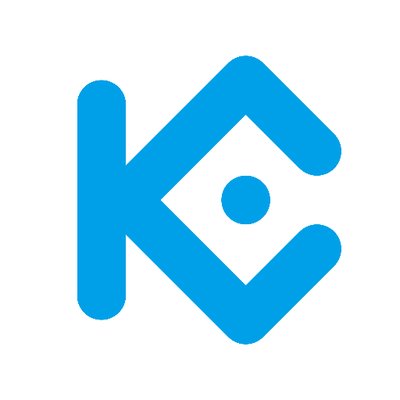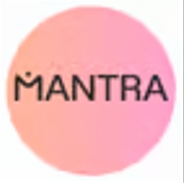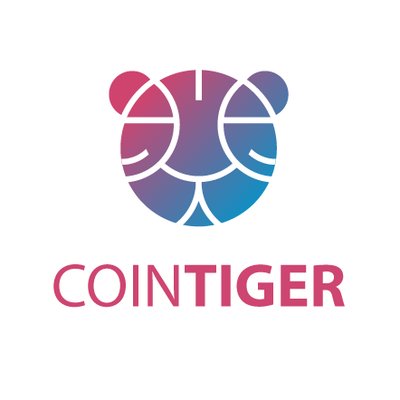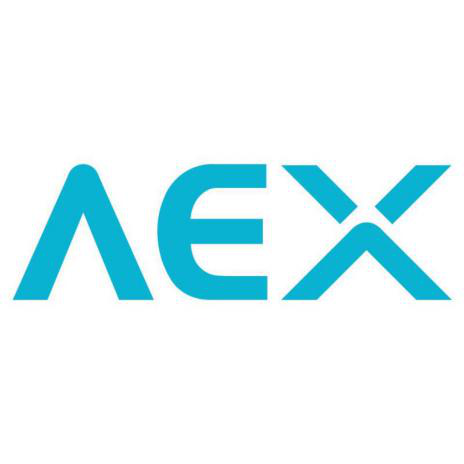Kraken’s Position on Regulation
2018-04-22 20:39:00 1034 0
Introduction
Since 2011, Kraken has been a leader in the industry, actively developing and driving multiple self-regulatory organizations (DATA, JADA), and working with regulators to enact fair and effective rules to govern the evolving blockchain industry. In fact, had we not laid off half the team in 2014, our legal bills would have bankrupted the company. As a startup (and hodler), lawyers are the last thing you want to be spending money on but we started this business because we wanted to do things differently. We left our cushy jobs as founders of another successful company out of an ideological motivation to build that legitimate, professional exchange which would be capable of bridging crypto with traditional financial institutions and bringing it to the mainstream. That is still our mission today. It is a mission that we can’t accomplish without working with regulators.
The NYAG Questionnaire
Kraken’s recent response to the NYAG’s questionnaire should not be taken as an indication that Kraken is opposed to working with government. The problems with the NYAG’s request are as follows:
- The deadline of 2 weeks is unreasonable given the scope.
- The publication of the request, lack of any prior communication and inclusion of exchanges which are clearly outside of the AG’s jurisdiction (including Kraken) raise questions about the true motive. It comes off as a publicity stunt.
- The request is ill-prepared. It’s an overly broad fishing expedition that asks questions irrelevant to the stated objective and misses obvious questions that actually would be helpful.
- Much of this information was already provided to the NYDFS in 2014.
- Much of this information was already provided to FinCEN in our 2017 audit.
- Much of this information is publicly available on our website.
- Some of this information is proprietary, trade secret information and kept confidential for competitive reasons.
- Some of this information is highly sensitive and kept confidential for security reasons.
- It is not clear that the complete production can remain private, especially given the government’s recent track record of getting hacked.
- The AG demands Kraken, which has no NY clients, to assist in protecting NY consumers (presumably against those who have obtained the BitLicense), without offering any sort of compensation for the professional consulting work.
To be fair, we would have given the same response to the AG of North Korea. We would be happy to work with the NYAG and the NYDFS (again) on a strategy for replacing the BitLicense with something rational. However, that engagement would be voluntary, not on any arbitrary deadline and we would expect NY to be respectful of our time, to do its own research and come to the discussion prepared. We would do this for free, as a gift to the people of New York.
We hope that NY will recognize the sensitivity that the community has toward apparently well-intentioned but misguided authorities in the state that gave us the BitLicense. Lawsky walked out the revolving door, in to a BitLicense consultancy and on to the board of Ripple. Given the history, New York needs to make a special effort to reengage the industry. Making surprise, public, unreasonable demands is not getting off on the right foot toward reestablishing trust and building a relationship. And the insinuation that a business isn’t legitimate if they don’t give you free consulting is misleading to the public, unprofessional and insulting.
Do we have answers to all the questions? Yes. Is the NYAG the world’s leading authority on what traders want from crypto exchanges? No. Is it the NYAG’s responsibility to ensure that global crypto exchanges have answered all these questions? No. Do traders actually care about answers to most of these questions? No. If the NYAG had bothered to ask, we could have told them what matters:
- Token selection
- Fast trade execution
- User Interface
- 24/7/365 continuous markets
- Uptime
- Security (until it fails, then they realize it’s #1)
- Privacy, minimal document requirement for on boarding
- Customer Service
What else doesn’t matter to most crypto traders:
- Licenses and regulatory approval
- Being protected from market manipulation
- Being protected from making risky investments
- Conforming to Wall St.’s image of what crypto markets should be
That’s all there is to say about New York.
Our Departure from Japan
Ironically, after all the effort we put in to bringing about the VC Act in Japan, we decided to take a step back. Kraken is Japan’s oldest surviving exchange and we led the industry in forming an SRO (JADA) and engaging with government but we failed to gain significant market share. Perhaps we focused too much on regulation and not enough on marketing.
We had been grandfathered in to operating in Japan with a VC Act application pending, however, the structure of our international business, broad token selection and extreme security measures added a lot of complexity that wasn’t shared by other applicants. Additionally, because we were still under evaluation when another major Japanese exchange was hacked, the scrutiny on us intensified. It became a bit of a moving goalpost situation, also with high likelihood that we would be required to substantially reduce our token selection.
An interesting strategy employed by some of our less advanced competitors in Japan was to disparage several tokens that we support, most likely because they did not have the technical capability to support them. So, if you can’t catch up, slow your competitor down. It’s an approach that regulators need to be wary of when taking feedback from competitors within an industry. Some may seek to leverage the regulator to eliminate their competitors’ legitimately earned advantages, at the expense of the consumer.
While Japan’s VC Act isn’t perfect, it is a good example of what (relatively) reasonable regulation can do for a country. Huge, traditional financial services are rushing in to crypto. For them, certainty is everything and now they have it. Japan’s crypto market is sure to be highly competitive, which is a great thing for consumers. I have to give the FSA in Japan a tremendous amount of credit for getting it together. They are a fine regulator to work with. Hopefully, Kraken will find an opportunity to re-enter the market in the near future.
Around the World, Key Questions
Kraken has been invited to share our industry expertise with lawmakers, regulators and heads of state around the world. In our effort to educate global decision makers, we’ve gained rare insight in to the varied approaches to crypto regulation. With that insight, we hope to provide food for thought, points to consider when determining how best to achieve one’s public policy goals:
- Decide your public policy goals and work backwards from there.
- Take a risk-based approach to regulation. Given the size of the industry, what kind of oversight is appropriate? Can you reasonably wait and see?
- Is there legacy regulation already in place that seems to (possibly confusingly or detrimentally) cover crypto? Would it be helpful to explicitly address this?
- If fraud and scams are among your top concerns, isn’t that activity already addressed with existing law? Is crypto-specific fraud differentiation necessary?
- Are banks and traditional financial institutions waiting on some sort of clarity or assurance in order to interact with crypto? Sometimes doing nothing is actually slowing business.
- Consider a sandbox environment which will give businesses room to operate with light supervision while more information is collected for informing future regulation.
- Accept that the technology and ecosystem are still evolving quickly and unpredictably. A regulatory misstep could end up hurting consumers in the long run.
- Make an effort to understand what the risks really are and how they differ from traditional assets and markets. Things assumed to be risks often aren’t because we have more transparency and fewer intermediaries.
- Don’t make onerous demands on businesses to describe complex processes you do not have the expertise to evaluate. Processes evolve quickly with the technology.
- Understand that the top priority for every crypto business is security. Even the experts with billions of dollars of incentives fail at this. You are likely wasting time and compromising security attempting to evaluate the security of any crypto business. Be careful not to introduce requirements that reduce security without fully understanding the implications.
- Know that many countries are competing to be a haven for crypto business and that most crypto companies are completely mobile and able to relocate quickly. If you regulate domestic business too heavily without protecting them against foreign competitors, you will see them relocate or lose.
- Assuming that companies will flock to the most favorable jurisdictions, how will you regulate their remote servicing of consumers in your jurisdiction? Do you really have the power to enforce against foreign entities?
- Have policy makers consult with law enforcement, economic and national security advisors about the value of keeping businesses onshore. A crypto strategy should be something decided at the highest level of government and not amongst short-sighted regulators competing for territory.
- With the development of completely decentralized financial markets and smart contracts, how will your regulation allow the centralized, regulated businesses to stay relevant? Or, is it desirable that financial markets completely transition to headless, decentralized, blockchain-based markets?
- Assuming that ultimately you will not be able to prevent consumers from using decentralized financial services, how will you educate consumers to protect themselves?
- Can we avoid heavy regulation with a system of educating consumers and providing warnings, similar to what we do with alcohol, tobacco and firearms?
- Do concepts like investor accreditation on the basis of wealth still make sense in the era of crypto where one can easily have complete custody of their own $10, 10-asset, diversified portfolio.
- Is it worthwhile to attempt to classify crypto assets in to buckets like utility, currency, commodity and security while so many assets are amorphous and classification is highly subjective? Is there something we can do to eliminate the analysis, increase certainty and simplify the rules?
- If you do impose regulation covering a particular class of crypto assets, do you leave any assets in regulatory purgatory, incapable of being legally transacted anywhere?
- If you don’t provide consumers a legal way to do what they want, given the global and decentralized nature of this industry, will they simply conceal their activity and do it anyway? Will an increase in obfuscated activity affect law enforcement?
- Is limiting what your residents can trade effectively a tax on the poor given that anyone with means can simply set up a foreign corporation and trade legally through that?
Consumer Protection
Generally, the two public policy goals that are trying to be achieved through financial services regulation are: a) consumer protection and b) crime reduction.
How much protection your consumers need comes down to how good a job you’ve done of educating them. In the United States, we receive zero compulsory education in finance, even through university. It therefore makes sense that we have some of the most oppressive financial services regulation in the world. No number of PhDs will earn you investor accreditation in the US, and your only hope to qualify to decide for yourself what to do with your money is to somehow get a lot of money. It’s a failed system that leaves the average person with investment choices like real estate, penny stocks and lottery tickets. It’s no wonder cryptocurrency is so hot these days.
The lack of education is also reflected in our obsession with curtailing market “manipulation”, which is a euphemism for mind control. You see, people here in the United States still make trades according to ancient, sacred line formations which appear on the charts. Thought by some to be trading signals from the gods, it is now known that some humans actually possess the ability to create these lines. These unholy artists must be prevented from exploiting the weak minds of the masses until the masses can be educated about more Earthly concepts, such as “fundamentals”. If only there were some way we could simply warn people or quiz them to qualify their minds to handle external inputs.
Fortunately, many of the threats we have developed laws to protect consumers from in the traditional financial services industry simply don’t exist in the crypto industry. We have greater transparency, fewer middle men, instant settlement, irreversible transfers, individual custody, atomic swaps, programmatically enforceable contracts, single assets traded on hundreds of exchanges. Because we have all these things, we have less systemic risk and many advantages over traditional markets. Assumptions we make about how traditional markets work don’t apply to crypto markets and therefore we need to try to remember why we imposed a specific requirement in the first place, before we unnecessarily impose it on the crypto markets.
Crime Reduction
Crime reduction comes in the form of conscripting private businesses in to the surveillance and police forces. AML/KYC, identify verifications and transaction monitoring are a growing cost of doing business for any compliant crypto exchange. We currently employ nearly 200 people (more than 25% of the company) in compliance-related functions. As of Q1 2018 we are processing more than 1 law enforcement request per day, seven days a week. Each request requires a substantial amount of time to authenticate and process, and often we take extra time to help law enforcement understand our business, blockchain technology, and the ecosystem. Law enforcement agencies in North America, Europe, Japan and Singapore see Kraken as a valuable resource. They are thankful to have someone onshore, who they can pick up the phone and talk to. We, as well, hope that the incentives remain for us to stay onshore, as an asset to those nations who value our presence.
Independent of law enforcement and regulation, the major crypto exchanges for a long time have worked together on crime prevention and mitigation, sharing strategies and information, freezing stolen funds moving from one exchange to another. We do this because it’s in our best interest to keep criminals off of our platforms, and to protect consumers, our clients, from losing their money. Contrary to popular belief, it is actually extremely difficult to launder a substantial amount of crypto because the major liquidity pools (exchanges) all do such a great job at verifying users — far better than most banks. This is why you see the coins from major hacks just sitting, incapable of being cashed out. It’s not something we had to be told to do. It happened naturally, and anyone who cares to look will find that there are many more examples of businesses self-regulating in the space.
Conclusion
Despite not having totally consistent, clear, global regulation, businesses and consumers have managed to figure it out and get along. Yes, scams are rampant but these are cases of simple fraud — crypto-specific regulation isn’t necessary to prosecute, as the SEC has made clear. The major exchanges are by and large good actors here, providing a valuable service in a very dangerous and difficult environment. Rather than handing down commandments from the ivory tower, regulators ought to seek the expertise of these businesses who have survived and managed to earn the trust of consumers and law enforcement over the years.
We encourage regulators to resist the temptation to just swing at whatever’s within arm’s reach. Think about your long-term strategy. If you make life too difficult for your neighbors, they might move away. And then you will be attempting to protect your consumers from the guys across the ocean, who couldn’t care less about your strong right hook. Kraken is always willing to work with regulators and law enforcement. Whether you think you have us by the balls or not, approaching us with some basic respect and having a conversation is always going to make the interaction smoother and help you get what you want faster than storming in with your “or else” list of demands.
We were recently asked why, with exchanges selling for hundreds of millions of dollars, we haven’t retired yet – why do we still do it. The answer is that the mission isn’t yet accomplished. We will continue working with leaders in government around the world until crypto is mainstream and ordinary, honest people no longer suffer from financial exclusion. It’s not easy and it’s not always fun but it’s meaningful work and it’s good work with good people, and that is what life is all about.
Jesse Powell
CEO | Kraken
发表评论:
- 推荐交易平台
-
-
1
欧易(OKX)
568011 -
2
大门芝麻开门交易所(gate.io)
245785 -
3
抹茶交易所(MXC)
246005 -
4
火必(火币网,Huobi Global)
399964 -
5
币安网(Binance)
95682 -
6
满币网(CoinBene)
125800 -
7
Z网(BitZ)
74645 -
8
Coinbase
44749 -
9
中币(ZB网)
215717 -
10
库币网(Kucoin)
77505
-
1
- 热门虚拟币
-
-
1
柚子(EOS)Vaulta (A)
48220 -
2
比特币(BTC)
77486 -
3
以太坊(ETH)
61672 -
4
莱特币(LTC)
31403 -
5
瑞波币(XRP)
44041 -
6
比特现金(BCH/BCC)
39975 -
7
以太经典(ETC)
28700 -
8
OK币(OKB)
55043 -
9
波场TRX(TRON)
35389 -
10
比特币SV(BCHSV/BSV)
37814
-
1
















































本文暂时没有评论,来添加一个吧(●'◡'●)